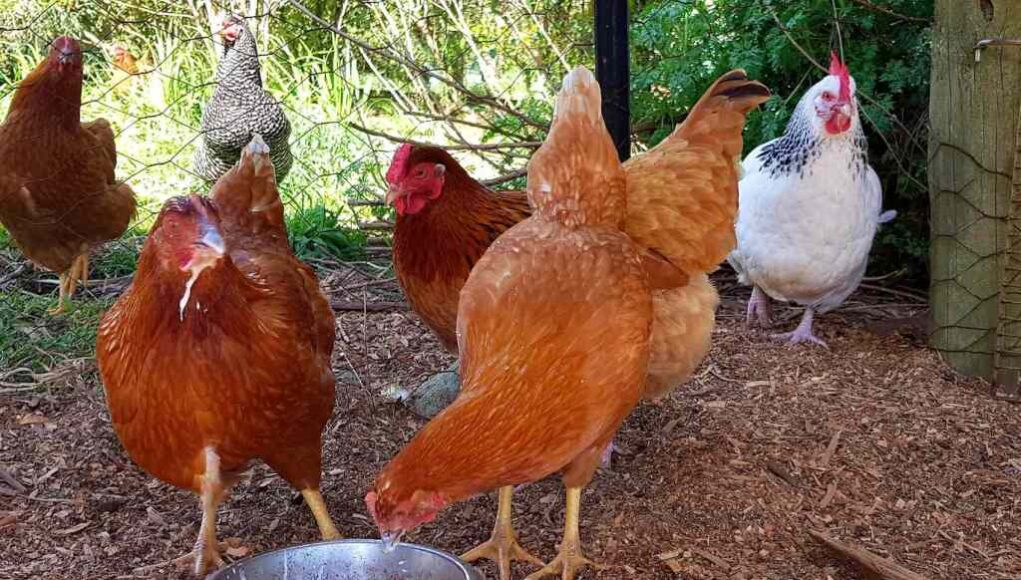As the warm sun of summer beats down, it’s essential to ensure your chickens remain comfortable and healthy. The primary focus is on how to keep chickens cool naturally in summer, a topic of great importance for poultry enthusiasts. When temperatures soar, chickens can face heat stress, which might affect their health and egg production. In this article, we’ll explore various methods to help your chickens beat the heat without relying on artificial means.

1. Importance of Keeping Chickens Cool
Chickens, like humans, can suffer from the heat. High temperatures can lead to heat stress, which can be fatal if not managed properly. The importance of keeping your flock cool cannot be overstated, as it directly impacts their well-being and productivity.
1.1 Signs of Heat Stress in Chickens
Being aware of the signs of heat stress is crucial. Look out for behaviors such as panting, lethargy, and reduced egg production. These are clear indicators that your chickens are struggling with the heat.
2. Providing Adequate Shade
One of the simplest ways of how to keep chickens cool naturally in summer is by ensuring they have plenty of shade. Trees, bushes, or man-made structures can offer relief from the sun.
2.1 Creating Natural Shade
Planting trees or tall shrubs around your chicken coop can provide natural shade. This not only helps in cooling the area but also adds to the aesthetic of your backyard.
3. Ensuring Access to Fresh Water
Water is vital for keeping chickens cool. Ensure they have constant access to clean, fresh water. Placing the water containers in shaded areas will help keep it cool throughout the day.
3.1 Adding Electrolytes
During extreme heat, consider adding electrolytes to their water to help them stay hydrated. This can be especially beneficial in preventing heat stress.
4. Providing Dust Baths
Chickens love dust baths, and they can be a great way for them to cool down. The dust helps absorb excess oil and moisture from their feathers, providing a cooling effect.
5. Using Cooling Herbs
Herbs such as mint and basil can have a cooling effect. Planting them around the coop or adding them to the chickens’ diet can help keep them cool.
5.1 Benefits of Mint
Mint is known for its cooling properties and can be easily grown around the coop. It not only helps in cooling but also aids in repelling pests.
6. Enhancing Coop Ventilation
Proper ventilation is crucial in keeping the coop cool. Ensure there is a good airflow by opening windows and vents. Consider installing fans if necessary.
6.1 Optimal Coop Design
A well-designed coop with adequate ventilation can make a significant difference in maintaining a cool environment. Position the coop to take advantage of natural wind patterns.
7. Providing Frozen Treats
Frozen fruits or vegetables can offer a refreshing treat for your chickens. Not only do they enjoy the snacks, but it also helps lower their body temperature.
7.1 Safe Frozen Foods
Ensure the treats are safe for chickens. Watermelon, cucumber, and berries are excellent choices that provide hydration and a cooling effect.
8. Using Misters and Sprinklers
Misters and sprinklers can be an effective way of how to keep chickens cool naturally in summer. They create a fine mist that cools the air and the ground around the coop.
8.1 Setting Up Misters
Place misters strategically around the coop and run area. Ensure they are set to a gentle mist to avoid over-wetting the chickens.
9. Choosing the Right Bedding
The type of bedding used in the coop can affect its temperature. Materials like sand can help keep the coop cooler than traditional straw or hay.
9.1 Benefits of Sand Bedding
Sand not only stays cooler but also provides a comfortable surface for chickens to walk on. It also aids in maintaining cleanliness by drying out droppings quickly.
10. Adjusting Feed Schedules
Feeding chickens during the cooler parts of the day can help prevent heat stress. Morning and late afternoon are ideal times to provide feed.
10.1 Nutritional Considerations
Ensure the feed is nutritionally balanced to support their health during the stressful summer months.
11. Keeping the Coop Clean
A clean coop is essential in maintaining a healthy environment. Remove droppings regularly to prevent them from adding to the heat and humidity.
11.1 Regular Maintenance
Schedule regular cleaning and maintenance tasks. This not only helps in cooling but also prevents disease.
12. Using Reflective Materials
Reflective materials on the roof of the coop can help deflect sunlight, reducing the overall temperature inside.
12.1 Types of Reflective Materials
Consider using white paint or reflective tarps. These materials are inexpensive and can significantly impact the coop’s temperature.
13. Monitoring Weather Changes
Stay updated with weather forecasts to anticipate heat waves. This allows you to prepare and implement additional cooling strategies as needed.
13.1 Planning Ahead
Having a plan in place for extreme weather conditions ensures you’re not caught off guard and can keep your flock safe.
14. Engaging with the Chicken Community
Engage with other chicken owners through forums and social media. Sharing tips and experiences can provide valuable insights into keeping chickens cool.
14.1 Online Resources
Websites like Chicken Things and More offer a plethora of information on chicken care and safety.

15. FAQs
How often should I change my chickens’ water in summer?
It’s best to change their water at least twice a day to ensure it remains cool and fresh.
Can chickens eat ice cubes?
Yes, chickens can peck at ice cubes. It provides them with a source of cool water and can be a fun activity.
What are some signs that my chickens are overheated?
Panting, holding their wings away from their body, and lethargy are common signs of overheating.
For more tips on natural chicken care, you can visit Dine a Chook where you can find various natural remedies and care tips.
This article contains affiliate links. We may earn a commission at no extra cost to you.











